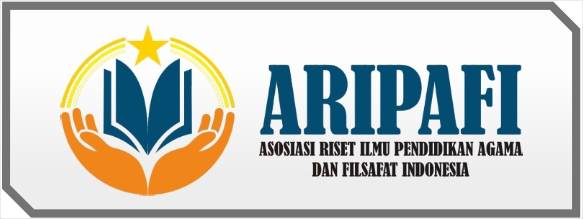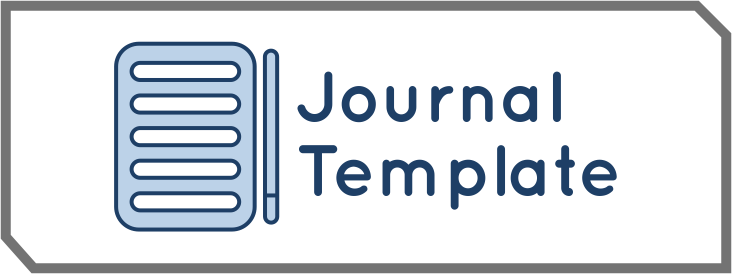Efektivitas Model Problem Based Learning dalam Meningkatkan Pemahaman Fiqih Siswa Kelas XI MA Plus Anas Bin Malik Lekong Rembuk
DOI:
https://doi.org/10.61132/hidayah.v1i4.797Keywords:
Fiqh Learning, Madrasah, Problem Based LearningAbstract
This study aims to examine the effectiveness of the problem-based learning model (PBL) in improving the understanding of fiqh material and its implementation in class XI students of MA Plus Anas Bin Malik Lekong Rembuk. The PBL model was chosen because it is considered capable of encouraging active student involvement and developing critical thinking skills through solving real problems that are relevant to everyday life. This study uses a Classroom Action Research (CAR) approach which is implemented in two cycles, each consisting of the planning, implementation, observation, and reflection stages. Data collection techniques include tests, observations, and interviews. The results of the study showed a significant increase in the understanding of fiqh concepts and active participation of students during the learning process. Students became more enthusiastic, able to express opinions, and demonstrate the ability to apply fiqh values in everyday life. Thus, the PBL model has proven effective in improving the quality of fiqh learning in madrasas and can be used as an alternative innovative learning strategy to improve learning outcomes and student character simultaneously.
References
Andriansyah, D. (2022). Pembelajaran konstruktivis pada pembelajaran fikih di SMP UBQ Nurul Islam Mojokerto guna meningkatkan berpikir kritis siswa. Nuris Journal of Education and Islamic Studies, 4(2), 89–98.
Arikunto, P. U. (2021). Metode penelitian tindakan kelas (PTK): Panduan praktis untuk guru dan mahasiswa di institusi pendidikan. Pubmedia Jurnal Penelitian Tindakan Kelas Indonesia, 1(4), 1–19.
Azka, M. Z. (2021). Kemampuan berpikir kritis siswa model Problem Based Learning dengan asesmen dinamis berpendekatan pembelajaran berdiferensiasi ditinjau dari kemandirian belajar. Jurnal Cendekia, 8(2), 1259–1272.
Chaisri, S., Chaijaroen, S., & Jackpeng, S. (2019). Theoretical framework of constructivist web-based learning environment model to enhance mathematical problem solving. In J. S. Pan, P. N. Suganthan, & T.-H. Kim (Eds.), Innovative technologies and learning (Vol. 11937, pp. 261–267). Springer. https://doi.org/10.1007/978-3-030-35343-8_28
Fadli, M. R. (2021). Memahami desain metode penelitian kualitatif. HUMANIKA: Kajian Ilmiah Mata Kuliah Umum, 21(1), 33–54. https://doi.org/10.21831/hum.v21i1.38075
Fatoni, M. H., Santoso, B., Syarifuddin, H., & Ridha, A. R. (2024). Pengukuran sikap keagamaan melalui skala sikap dalam pendidikan agama Islam. IHSANIKA: Jurnal Pendidikan Agama Islam, 3(1), 125–138. https://doi.org/10.59841/ihsanika.v3i1.2120
Gajah, N. A. (2023). Peranan strategi pembelajaran contextual teaching and learning pada mata pelajaran fikih. GURUKU: Jurnal Pendidikan dan Sosial Humaniora, 1(2), 107–119.
Heriyanto. (2018). Thematic analysis sebagai metode menganalisa data untuk penelitian kualitatif. ANUVA, 2(3), 317–324. https://doi.org/10.14710/anuva.2.3.317-324
Kosim, M. (2007). Madrasah di Indonesia (pertumbuhan dan perkembangan). Tadris, 2(1), 41–57.
Kusumah, W., & Dwitagama, D. (2009). Mengenal penelitian tindakan kelas. PT Indeks.
Mansir, F. (2020). Management of fiqh learning in school and madrasah for Islamic religious education teacher. Ta’dib: Jurnal Pendidikan Islam, 9(2), 78–85. https://doi.org/10.29313/tjpi.v9i2.6797
Mulia, B. (2020). Penerapan contextual teaching learning pada materi fikih dan sejarah kebudayaan Islam jenjang madrasah aliyah. Fikrah: Journal of Islamic Education, 4(1), 84–96.
Nur, F. (2022). Peningkatan pemahaman mata pelajaran fikih materi puasa melalui model pembelajaran kooperatif. AL IBTIDAIYAH: Jurnal Pendidikan Guru Madrasah Ibtidaiyah, 4(1), 37–45.
Nurdaniyah, L. (2020). Hubungan antara metode pembelajaran Problem Based Learning dengan minat dan motivasi belajar Bahasa Indonesia kelas dua. SHEs, 3(3), 1512–1517. https://doi.org/10.20961/shes.v3i3.56964
Sugiyono. (2013). Metode penelitian kuantitatif, kualitatif dan R&D. Penerbit Alfabeta.
Ubaidillah. (2023). Strategi contextual teaching and learning pada pembelajaran fikih di Madrasah Ibtidaiyah Negeri 22 Hulu Sungai Tengah. ADIBA: Journal of Education, 2(4), 470–481.
Wardani, H. K. (2022). Pemikiran teori kognitif Piaget di sekolah dasar. Khazanah Pendidikan, 16(1), 7–19. https://doi.org/10.30595/jkp.v16i1.12251
Wirakanta, A., & Sukarno, H. S. R. (2022). Investigating the implementation of Problem-Based Learning (PBL) in English teaching and learning. In D. Wahyuni & A. M. Fahmi (Eds.), Proceedings of the International Conference on Sustainable Innovation on Humanities, Education, and Social Sciences (ICOSI-HESS 2022) (pp. 260–273). Atlantis Press. https://doi.org/10.2991/978-2-494069-65-7_24













